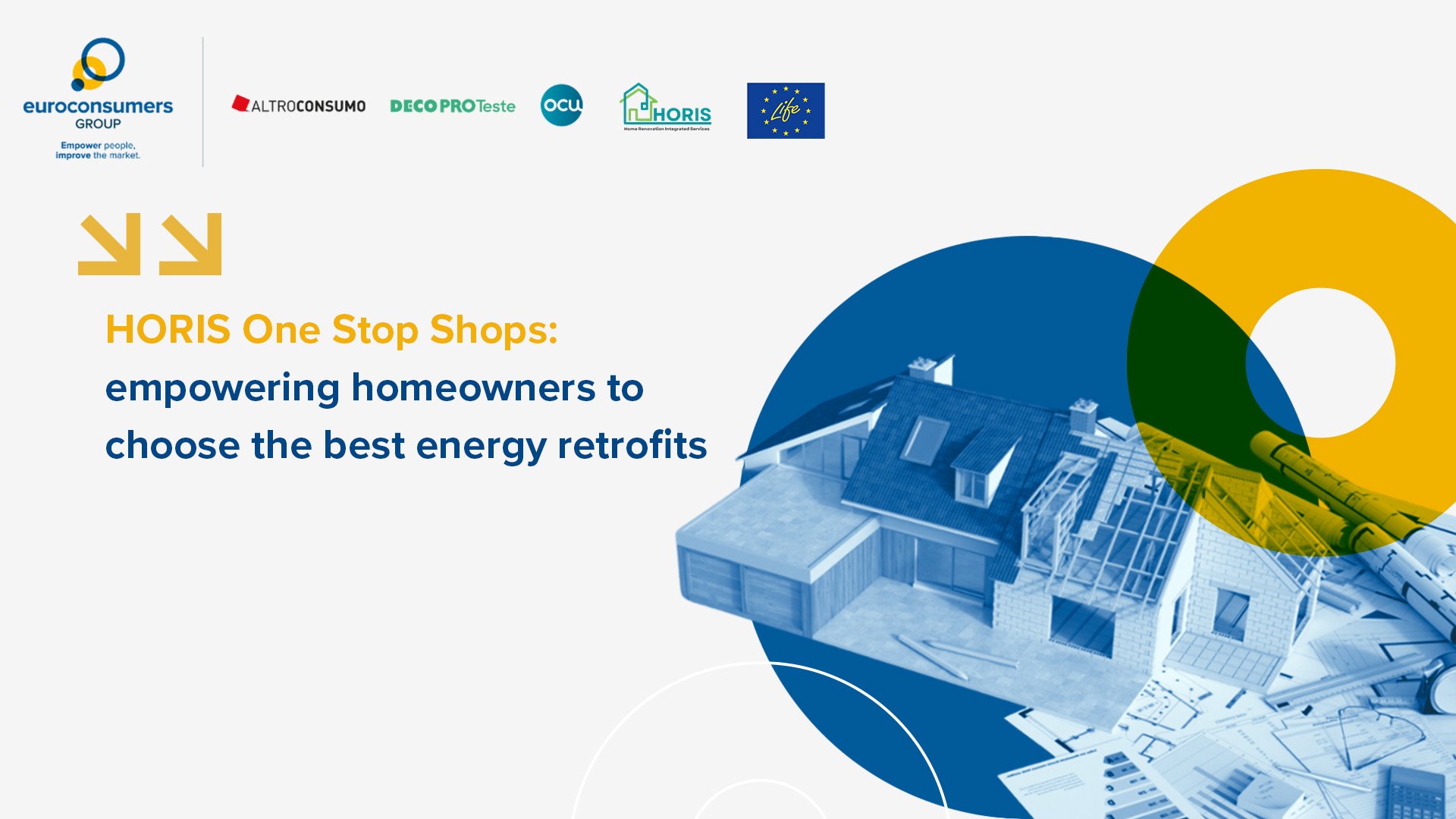
HORIS One Stop Shops: Empowering homeowners to choose the best energy retro...
HORIS online One Stop Shops are taking the hard work out of choosing low carbon, sustainable home energy renovations.
Read More


Euroconsumers members OCU, Altroconsumo, Testachats and DecoProteste are part of the EPREL Services Project, which is advancing how consumers can access information on products with energy-labels.
The project which is co-funded by the European Union under the LIFE Programme will make the existing EPREL database of product information into place where consumers can quickly search, filter and compare energy-labelled products-complete with harmonised efficiency ratings, technical details and running-cost data.
Our members have been part of delivering a new survey with 2,500 consumers and stakeholders in 10 European countries to find out what consumers wanted from this type of service, what they valued most and what would make them use it.
Cost considerations remain the biggest influence on purchasing decisions. Consumers do value the energy efficiency of products, but the importance they put on this shifts by product category. Across all the different product types, consumers ranked warranties as key to purchasing decisions which reflects the importance consumers put on product durability.

When choosing big ticket items like white goods or domestic appliances, energy consumption and efficiency is the single most influential decision point, along with purchase price, total cost of ownership, and running costs.

When customers are deciding on consumer electronics the up-front purchase price stands out as the decisive factor, while energy consumption and running costs play a smaller role.
Both tables above show the average values consumers assigned for importance rated on a scale from 0 to 3, with higher values representing greater importance. Source: EPREL Services survey 2025
The EPREL Services Project wants to unlock the full value of the EPREL database, and listening carefully to what consumers want and how they would use it will be a crucial part of its success.
Consumer feedback pointed to key priorities for EPREL’s future development including increasing visibility of its resources, improving the clarity and accessibility of technical information and accelerating and refining search and filtering capabilities.
All of the findings from the research will be fed into a new web application that will merge comprehensive product data – including energy consumption and efficiency, and technical features – into a user-friendly platform.
Consumers across Europe are motivated to make sustainable choices, but they need reliable, accessible, and easy-to-understand information to do so. This research shows that as well as energy efficiency and cost information, people also value transparent technical information, and simplified tools for comparing products.
EPREL project spokesperson
Thoughtful, consumer-centered design will enable the next generation of EPREL services to meet its goal of empowering consumers and professionals to make smarter, more sustainable purchasing decisions. This will ultimately move us towards a more energy-efficient Europe.
The EPREL Services Project consortium which includes Altroconsumo, Testachats, OCU and DECO Proteste conducted a survey of consumers and stakeholders between November 2024 and January 2025 with approximately 2,500 consumers across Austria, Belgium, Czechia, Denmark, France, Greece, Italy, Poland, Portugal, Spain. The survey focused on the EPREL database, specifically, consumer awareness of it, and more broadly, the key factors people consider when selecting energy-related products.
The EU-wide EPREL database of energy labelled products was established in 2019. The EPREL Services Project is now transforming how consumers and professionals can access that rich data and rely on it for sustainable purchasing decisions. The project to enhance the database includes:
Project partners
Austrian Energy Agency, Austria (lead co-ordinator)
BIG2GREAT APS, Denmark
SEVEN, The Energy Efficiency Center, Czechia
ADENE, Agência para a Energia, Portugal
Guide Topten SARL, France
Altroconsumo, Italy
Centre for Renewable Energy Sources and Saving Foundation (CRES), Greece
Agence de l’Environnement et de la Maîtrise de l’Énergie (ADEME), France
Krajowa Agencja Poszanowania Energii Spolka Akcyjna (KAPE), Poland
OCU, Spain
Testachats, Belgium
GS1 in Europe, Belgium
DECO PROTeste, Portugal
